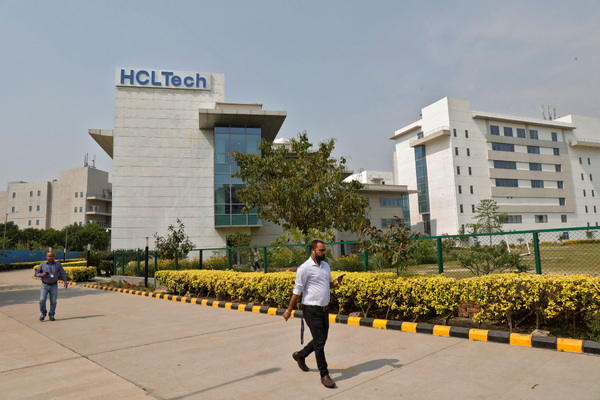Beyond agility: why organisations need a gymnastic mindset
Sponsored by PMI
“In a time of crisis, with the future of an organisation at stake, a ‘fail fast’ approach may not be optimal”
Change in the workplace is nothing new. The recent pandemic, however, has accelerated change and reshaped the way we work. For some time, we have used the acronym VUCA – volatility, uncertainty, complexity, and ambiguity – to describe a world of rapidly changing business. But as a result of recent events, the term is no longer sufficient.
Our new landscape is one defined by shock (major and dislocating change), speed (rapidly accelerating change) and surprise (change that is unexpected both in its nature and its impact).
Organisations already had a need to be agile, but the Covid-19 pandemic has added complexity by way of major disruptions to our society virtually overnight. To thrive in a post-Covid landscape – one characterised by shock, speed, and surprise – organisations need more than agility alone; they need a “gymnastic” mindset to cope with change.
What are some characteristics of a gymnastic organisation?
- Nimble: they pivot their activities rapidly in one direction and then, if necessary, in another
- Elegant: as they pivot, these organisations are controlled in the way they implement change
- Confident: they believe in achieving success and are resolute in finding it
Becoming gymnastic is not easy. It requires a multi-pronged approach that draws upon both the traditional and the new – balancing structured project management approaches that have stood the test of time, a mindset that embraces change, and the capability to manage complex situations that involve multiple stakeholders.
Manage shocks of change
Major change can tear down old certainties and foster anxiety. It can destroy the way value was once created and its consequences can be hard to understand.
Organisations that are adversely affected by major shocks must focus on how they adapt to new situations.
As one example, many restaurants upweighted their home delivery services during the pandemic to offset the loss of in-house customers. But adaptation is frequently not enough. In a crisis when customer needs are constantly evolving, organisations must pivot to change their mission and reinvent what they do to continue to deliver value.
Overcome the paradox
The ability to pivot requires nimbleness and agility. In a time of crisis, with the future of an organisation at stake, a “fail fast” approach may not be optimal. There needs to be some certainty around outcomes when there is pressure on profitability. Therein lies the paradox: ignore change and fail, or change in the wrong direction – and fail.
With a gymnastic mindset, an organisation can solve this paradox.
Organisations must be willing to try different approaches, remain focused on results and maintain the ability to move in a different direction when new ways of working appear to fail. To succeed, this requires a disciplined and structured project management approach, layered on top of innovation and flexibility.
Apply Disciplined Agile
One well-established response to change has been to apply an Agile approach to projects. In fact, Project Management Institute’s (PMI) Tomorrow’s Teams Today report found that, over the past year, one in four projects were completed using Agile, and that over the next five years half of all project management offices expect that number to increase.
PMI’s suite of Disciplined Agile (DA) offerings can help organisations tailor Agile processes to meet their unique challenges. DA provides guidance for understanding different ways of working, the freedom to choose the approaches that best suit team objectives, and the opportunity to continuously improve ways of working so that productivity can increase. For example, with PMI’s Basics of Disciplined Agile online course, users can learn how to navigate hundreds of Agile frameworks and techniques so that they can pick the best approach for the situation at hand.
The new world we live in requires constant adaptation in the ways we work – new openness, structures, and skills are required. Disciplined Agile recognises that every organisation is different, and within each organisation there are different ways of working. This is the centre of the gymnastic mindset.
Address technology – and people
Technology plays an important role in helping organisations deliver against their objectives. As people increasingly work alongside machines to perform their jobs, the need for technology will also increase. However, technology is not a solution on its own. Organisations must recruit, develop and retain people with the right skills and knowledge, the right approach to technology governance, and the belief that technology can be an avenue for success.
Beyond technical skills, organisations must also identify individuals who possess what PMI calls “power skills” and encourage their growth. In a time of increased automation, these power skills emphasise enduring human capabilities, including:
- Collaborative leadership
- Empathy for colleagues and customers
- Creativity and innovative problem solving
- Excellence in communication and persuasion
- Passion and determination to deliver on outcomes
Power skills are increasingly important in today’s new work ecosystem. In fact, PMI’s Pulse of the Profession research found that project professionals ranked collaborative leadership as the single most essential team skill to possess. With teams equipped with both technical and power skills, organisations will be able to deliver a competitive advantage in an evolving work environment.
Enable the change maker
In The Project Economy, change is carried out through a transformative series of projects. Outcomes are what matter in The Project Economy – delivering substantive value at the conclusion of each initiative – and project managers, or change makers, will be at the forefront helping the world reboot and recover following the pandemic.
Armed with the right skillsets, change makers will help ensure organisations continue to respond positively as the world increasingly changes. By providing training, best practices, effective tools and networking opportunities, PMI is committed to helping organisations and change makers master the skills and capabilities necessary to operate and thrive in this new work ecosystem.

Business Reporter Team
Most Viewed
23-29 Hendon Lane, London, N3 1RT
23-29 Hendon Lane, London, N3 1RT
020 8349 4363
© 2024, Lyonsdown Limited. Business Reporter® is a registered trademark of Lyonsdown Ltd. VAT registration number: 830519543
Join the Business Reporter community today and get access to all our newsletters, and our full library of talk show episodes
Join the Business Reporter community today and get access to all our newsletters, and our full library of talk show episodes





